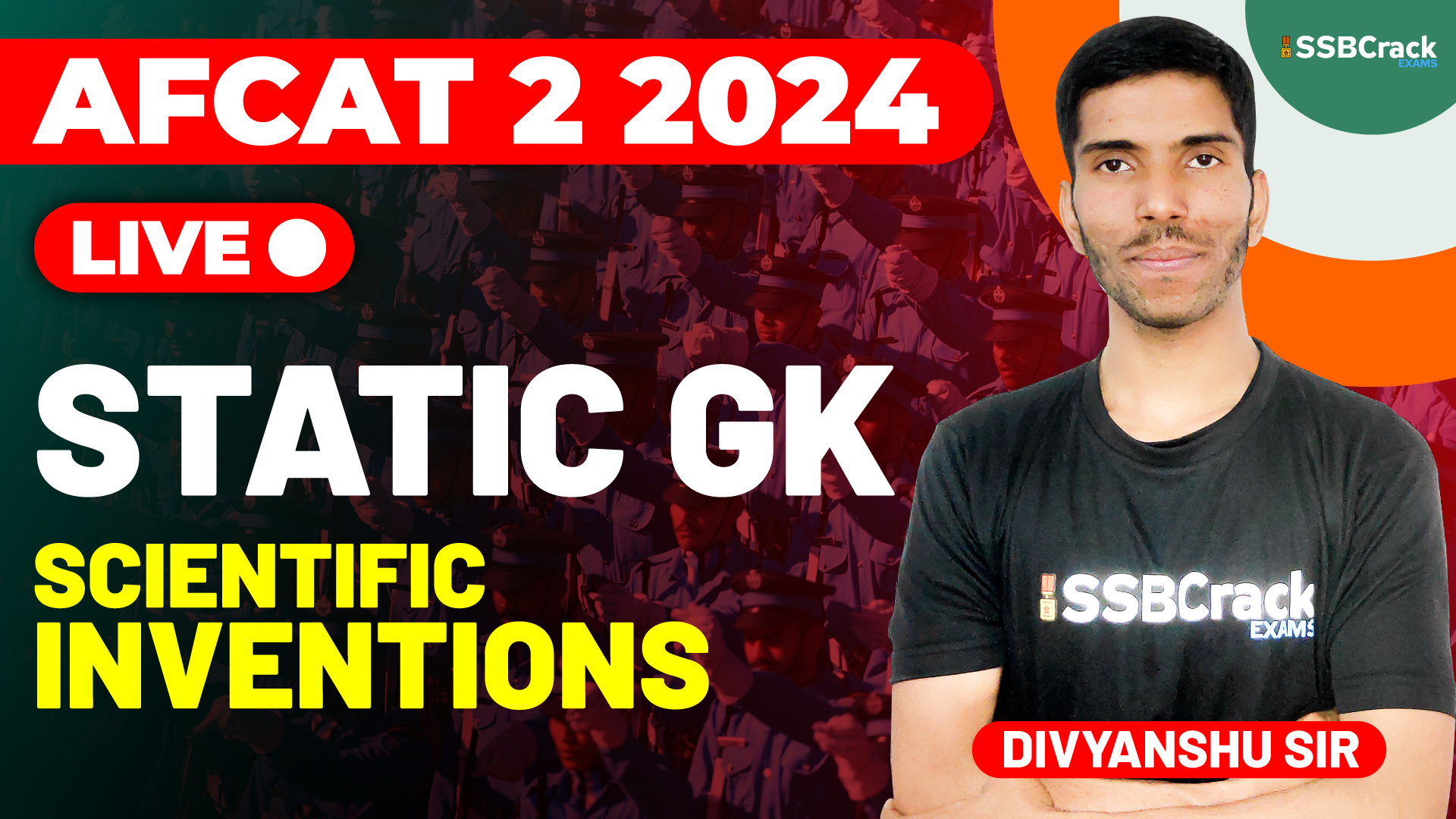Scientific inventions have played a pivotal role in shaping human civilization, driving progress, and transforming societies. For AFCAT 2 2024 aspirants, having a comprehensive understanding of key scientific inventions and their inventors is crucial for the static General Knowledge (GK) section of the exam. This article provides an overview of significant scientific inventions, their inventors, and their impact on the world.
AFCAT 2 2024 Exam Static GK Scientific Inventions
Early Scientific Inventions
1. The Wheel
- Inventor: Unknown
- Era: Around 3500 BC
- Impact: The invention of the wheel revolutionized transportation and machinery, facilitating the development of trade, agriculture, and various technologies.
2. The Compass
- Inventor: Unknown (first used by the Chinese)
- Era: 11th Century AD
- Impact: The compass enabled maritime exploration and navigation, leading to the discovery of new lands and the expansion of trade routes.
Renaissance to Early Modern Period
1. Printing Press
- Inventor: Johannes Gutenberg
- Year: 1440
- Impact: The printing press allowed for the mass production of books, spreading knowledge and literacy and leading to the Renaissance and the Scientific Revolution.
2. Telescope
- Inventor: Hans Lippershey (credited with the first patent)
- Year: 1608
- Impact: The telescope revolutionized astronomy, enabling significant discoveries about the solar system and the universe, including those by Galileo Galilei.
3. Microscope
- Inventor: Zacharias Janssen (credited with the first compound microscope)
- Year: 1590
- Impact: The microscope opened up the microscopic world, leading to advances in biology, medicine, and materials science.
Industrial Revolution
1. Steam Engine
- Inventor: James Watt (improved version)
- Year: 1769
- Impact: The steam engine powered the Industrial Revolution, transforming industries such as manufacturing, transportation, and mining.
2. Telegraph
- Inventor: Samuel Morse
- Year: 1837
- Impact: The telegraph revolutionized long-distance communication, making it possible to transmit messages quickly across great distances.
3. Telephone
- Inventor: Alexander Graham Bell
- Year: 1876
- Impact: The telephone transformed personal and business communication, laying the foundation for the global telecommunications network.
4. Light Bulb
- Inventor: Thomas Edison (credited with the first practical incandescent bulb)
- Year: 1879
- Impact: The light bulb extended the day, allowing for increased productivity and the development of electric power infrastructure.
20th Century Inventions
1. Airplane
- Inventor: Wright Brothers (Orville and Wilbur Wright)
- Year: 1903
- Impact: The airplane revolutionized transportation, enabling fast travel across long distances and connecting the world like never before.
2. Penicillin
- Inventor: Alexander Fleming (discovered)
- Year: 1928
- Impact: Penicillin marked the beginning of modern antibiotics, saving countless lives by treating bacterial infections.
3. Transistor
- Inventor: John Bardeen, Walter Brattain, and William Shockley
- Year: 1947
- Impact: The transistor revolutionized electronics, leading to the development of computers, smartphones, and countless other digital devices.
4. Internet
- Inventor: Multiple contributors (including Vint Cerf and Bob Kahn)
- Year: 1960s-1970s (development began)
- Impact: The internet transformed communication, information sharing, and commerce, becoming an integral part of modern life.
Recent Innovations
1. World Wide Web
- Inventor: Tim Berners-Lee
- Year: 1989
- Impact: The World Wide Web revolutionized access to information, enabling the growth of the digital age and transforming how people interact with information and each other.
2. Human Genome Project
- Completion Year: 2003
- Impact: The Human Genome Project mapped the entire human genome, paving the way for advances in genetics, personalized medicine, and biotechnology.
3. CRISPR-Cas9
- Inventors: Emmanuelle Charpentier and Jennifer Doudna
- Year: 2012
- Impact: CRISPR-Cas9 is a groundbreaking gene-editing technology that allows precise modifications to DNA, with potential applications in medicine, agriculture, and beyond.
Conclusion
Understanding the history and impact of key scientific inventions is crucial for AFCAT 2 2024 aspirants. These inventions have not only transformed the world but also paved the way for future innovations. From the wheel to CRISPR-Cas9, each invention represents a significant leap in human progress. Familiarize yourself with these important scientific milestones to enhance your static GK knowledge and excel in the AFCAT 2 2024 exam.








